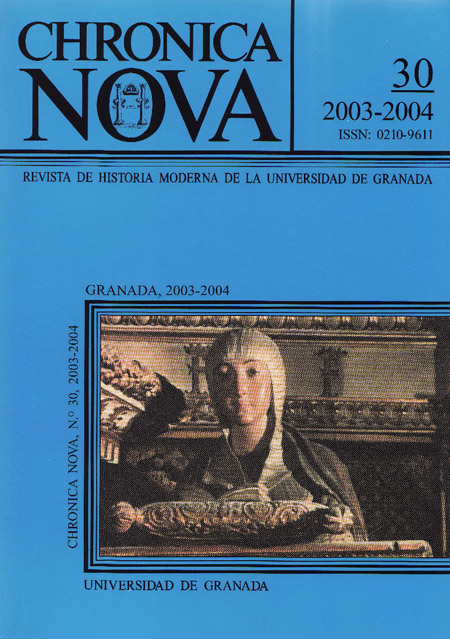To raid the renta. Chaos and conflict in the administration of the renta de la reda in the Kingdom of Granada at the beginning of the 17th century (1600-1608)
DOI:
https://doi.org/10.30827/cn.v0i30.1845Keywords:
Silk, Kingdom of Granada, 17th century, Renta de la seda, Consejo de Hacienda, Social conflictAbstract
Between 1607 and 1608, the silk traders of Granada played the leading role in a critical confrontation against Juan Bautista de Guedeja, tax-collector of the renta de la seda in the Kingdom of Granada. The result was the transfer of the renta administration to the Universidad de mercaderes, a group that initially formed of the thirty main silk traders of Granada and Malaga. This fact meant the final phase of a process that went on during the early years of 17th century. On the one hand, it was motivated by the growing degradation of the management of the renta, full of non-payments of juros and tax-collectors’ continuous frauds. On the other, it was a conflict directed and carried out by the most powerful traders who were supported by the town council of Granada and other local institutions. They hid the will to keep it under the pretext of a bad management and, so they could control one of the most important economic recourse of the Kingdom of Granada. Finally, we’ll analyse the making of decisions inside the Consejo de Hacienda, so in the negotiation of the renta and the pursuit of the tax-collectors’ frauds and cracks, as in the development of the conflict.Downloads
Downloads
Published
How to Cite
Issue
Section
License
Nuestra revista se atiene a las recomendaciones para la implementación del Artículo 37 Difusión en Acceso Abierto de la Ley de la Ciencia, la Tecnología y la Innovación:
- Los/as autores/as cuyas contribuciones sean aceptadas para su publicación en esta revista conservarán el derecho no exclusivo de utilizar sus contribuciones con fines académicos, de investigación y educativos, incluyendo el auto-archivo o depósito de los artículos aceptados en repositorios institucionales o temáticos de acceso abierto de cualquier tipo en un plazo máximo de seis meses.
- Preferiblemente se permitirá el uso de la versión publicada de las contribuciones científicas, que estarán accesibles en abierto tan pronto como sea posible.
-
Que en caso de que el trabajo sea aprobado para su publicación, el/la autor/a autoriza de manera ilimitada en el tiempo a la entidad editora para que incluya dicho texto en Chronica Nova y pueda reproducirlo, editarlo, distribuirlo, exhibirlo y comunicarlo en el país y en el extranjero por medios impresos, electrónicos, CD, Internet o cualquier otro medio conocido o por conocer.






 ISSN-e: 2445-1908
ISSN-e: 2445-1908










